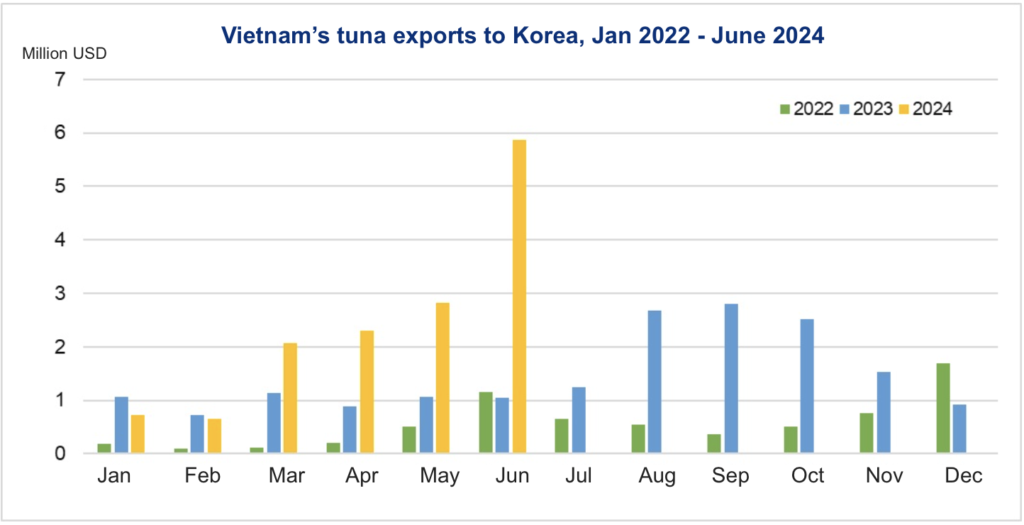Vietnam Seafood
Tuna exports to South Korea skyrocket
Over the past three months, Vietnam has seen a dramatic surge in tuna exports to South Korea, with growth rates hitting triple digits. June was particularly remarkable, with export values reaching nearly $6 million—an increase of almost sixfold compared to the same month in 2023.
For the first half of 2024, cumulative tuna exports to South Korea have surpassed $14 million, marking a 144% increase from the previous year. This has positioned South Korea as one of the top ten importers of Vietnamese tuna.
Data from Vietnamese Customs indicates that 15 companies were engaged in exporting tuna to South Korea in the first half of the year. Leading the way are Nha Trang Bay, Yueh Chyang Canned Food, and Trinity Vietnam, which collectively account for 86% of the total export value for the first six months of 2024.
With a population exceeding 51 million, South Korea is proving to be a lucrative market for Vietnamese tuna exporters, especially given the impressive growth trend observed since last year.
The Vietnam-Korea Free Trade Agreement (VKFTA), effective since December 2015, has bolstered economic, trade, and investment relations between the two nations. Both countries are part of the Regional Comprehensive Economic Partnership (RCEP), and South Korea is considering joining the Comprehensive and Progressive Agreement for Trans-Pacific Partnership (CPTPP), which includes Vietnam.

Currently, South Korea primarily imports processed and canned tuna from Vietnam, which constitutes 99% of the total export volume. The country mainly imports frozen loins of skipjack tuna.
Changes in seafood consumption trends in South Korea, driven by reduced consumer spending, offer an opportunity for Vietnamese seafood exporters to increase shipments of competitively priced products.
Similar to Japan, the geographical proximity to South Korea provides a logistical advantage for exporters. The stable demand, combined with the current inflation-driven consumption declines in Western markets, makes South Korea a promising destination for Vietnamese exports.
As shipping costs to the U.S. and Europe rise due to tensions in the Red Sea, many companies are focusing on closer markets like South Korea. Importantly, while South Korea is reducing its tuna imports from other countries, it is increasing its intake from Vietnam.
However, domestic supply challenges are emerging due to regulations on the minimum size of skipjack tuna, as stipulated in Decree 37. This is posing difficulties for maintaining the current high growth rates of tuna exports to South Korea in the latter half of 2024.
(Source: https://vietfishmagazine.com/)



 Tiếng Việt
Tiếng Việt